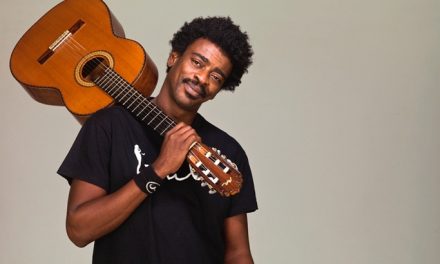By Alia Ponte
 Under the responsibility of the cultural department of the city of São Paulo, and recognized by the International Council of Museums in 1987, the African Brazil has an open space, focused to the research of human remains and their influence. Located in the biggest Brazilian city and opened in 2004, the museum was designed by Oscar Niemeyer in the 50’s with a mission to provide an artistic and historic meeting of black communities in the country.
Under the responsibility of the cultural department of the city of São Paulo, and recognized by the International Council of Museums in 1987, the African Brazil has an open space, focused to the research of human remains and their influence. Located in the biggest Brazilian city and opened in 2004, the museum was designed by Oscar Niemeyer in the 50’s with a mission to provide an artistic and historic meeting of black communities in the country.
Nowadays the museum has a collections of about 4,000 items, such as paintings, sculptures, documents and ethnic pieces created by Brazilian and foreign artists (XV century), besides modern pieces of art. The gathered pieces are about religion, art, diaspora and slavery, taking into consideration the historical background and African influences for the construction of Brazilian identity. Beyond the cultural aspect, African Brazil Museum offers instructive activities and temporary exhibitions. Inside the museum there is a theater and a library.
The area called ‘Africa’ is dedicated to African history, culture and art. It is given a highlight on pieces of art from countries such as Ivory Coast, Cameroon, Congo, Nigeria, among others, related to magic and religion rituals and also objects used in the daily routine like smoking pipe, comb, reliquaries (from XV to XX centuries).
The section ‘Trabalho e Escravidão’ (Work and Slavery) refers to enslaved African people and their descendants as constructors of the Brazilian society. ‘Sagrado e Profano’ (Sacred and Profane) contains illustrations, watercolor paintings and photographies related to religious festivities of the popular Catholicism and Afro-Brazilian brotherhood like Nossa Senhora do Rosário, Divino and Irmandade da Boa Morte; and folk celebrations influenced by African people that are relevant in North and Northeast of Brazil. Masks, objects and clothes used in these festivities can be seen in this area of the museum.
 The area called ‘Religiosidade Afro-Brasileira’ (Afro-Brazilian Religiousness) has religious objects, characters, clothes, sculptures, and photographies from colonial period to the present, such as saint’s sculptures from centuries XVIII and XIX. ‘História e Memória’ (History and Memory) brings a tribute to the great characters from colonial period to the present like Zumbi dos Palmares [1], writer Joaquim Machado de Assis (1839-1908), engineer Teodoro Sampaio (1855-1937), and doctor Juliano Moreira (1873-1933) among others.
The area called ‘Religiosidade Afro-Brasileira’ (Afro-Brazilian Religiousness) has religious objects, characters, clothes, sculptures, and photographies from colonial period to the present, such as saint’s sculptures from centuries XVIII and XIX. ‘História e Memória’ (History and Memory) brings a tribute to the great characters from colonial period to the present like Zumbi dos Palmares [1], writer Joaquim Machado de Assis (1839-1908), engineer Teodoro Sampaio (1855-1937), and doctor Juliano Moreira (1873-1933) among others.
Since June 22nd, 2011, the temporary exhibition called ‘O Negro no Futebol’ (Black People Playing Soccer) shows caricatures, game DVD’s and icons of soccer history like Pelé, considered the athlete of the century (who celebrated his 70th birthday in 2010) and Djalma Santos, elected the best side player in the 1958 and 1932 World Cups.
African Brazil has worked in order to promote and expand the issues presented. It is a space that provides knowledge about the historical contribution of the African people as the captivity, slavery and freedom are presented since Colony to the present days. The gathering of the pieces of art exposed at the museum shows in a concrete way the influence of African culture.
Knowing ‘Africa in São Paulo’ should be part of the agenda of any traveler interested in cultural diversity, for sure! The African black people brought to the country much more than workforce, they brought with them cultural, religious, gastronomical wealth of great importance to the construction of Brazilian nation.
The Museu Afro Brasil is located at Avenida Pedro Alvares Cabral, s/n, Parque Ibirapuera, Portão (Gate) 10 in São Paulo/SP. It is usually open Tues to Sunday from 10am to 5pm and the admission is free – www.museuafrobrasil.org.br.
[1] Zumbi dos Palmares, a black Brazilian legend, who was born in a refuge for slaves called quilombo. He was a leader of this famous refuge and his life was full of polemics. Descendant of Angolan warriors, he was captured when he was a baby by an expedition lead by Brás da Rocha and given to a priest called Antonio Melo in Porto Calvo (1655).
* For airfare from the United States to Brazil or Latin America, customized travel packages, alternative accommodations, as well as travel planning consultation please visit our travel agent page or contact Magali da Silva directly by phone or whatsapp: 1(323)428-1963.














